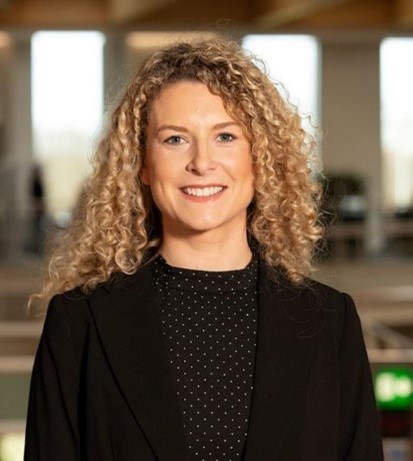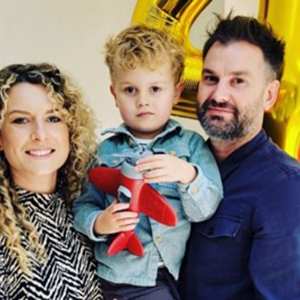 In honour of Neurodiversity celebration week, I wanted to share with you why this following quote from Ignacio Estrada really resonates with me:
In honour of Neurodiversity celebration week, I wanted to share with you why this following quote from Ignacio Estrada really resonates with me:
“If a child can’t learn the way we teach, maybe we should teach the way they learn.”
When my son, Rui, was one years old, he was diagnosed with Global Developmental Delay (GDD). GDD is an early onset chronic neurological condition. It’s an umbrella term used when children are significantly delayed in multiple areas of development such as motor skills, speech, cognitive and social and emotional development.
Rui was delayed, and still is in some areas, reaching his developmental milestones. He crawled at 22 months, walked at 26 months, and was able to jump recently at the age of four, but is still preverbal, not having spoken a single word yet or consistently made any symbolic sounds.
When Rui was two, my husband, Nick, and I had some advice to try using Makaton. Makaton is a communication tool which uses signs and symbols that supports the development of essential communication skills such as attention and listening, comprehension, memory, recall and organisation of language and expression. When using Makaton, you always speak while you sign or use symbols to make the link between the sign/symbol and the spoken word.
Putting myself in Rui’s shoes; every day he can’t say how he is feeling, tell me if he’s hungry, if he’s in pain, or if he wants to play. I could also see that other children didn’t want to play with him at times. What did they get out of playing with Rui who didn’t understand their games or was not able to speak back to them. It would break my heart and as his Mom I needed to try everything I could to get him heard, be understood, and feel included. I’d already picked some Makaton up from the CBeebies TV programme ‘Something Special’ and enjoyed learning it from that, but now I had a real reason to implement it at home. We hoped it would hopefully reduce Rui’s frustrations and regular meltdowns while we wait for the speech to come.
Learning Makaton
 To start with, learning Makaton was a daunting task. I put a lot of pressure on us as parents to get it right. I wanted to learn all the signs in a short space of time, but Rui was so little and unsurprisingly not interested in taking note of what I was trying to teach him yet, so then it began to feel like an impossible task and at times, a waste of time.
To start with, learning Makaton was a daunting task. I put a lot of pressure on us as parents to get it right. I wanted to learn all the signs in a short space of time, but Rui was so little and unsurprisingly not interested in taking note of what I was trying to teach him yet, so then it began to feel like an impossible task and at times, a waste of time.
Keen to stick with it, we took some of the pressure off and focused on five key functional Makaton signs, and consistently used them for a year. It wasn’t until Rui was three, he began to show an interest in watching my hands and then one day he just signed ‘milk’ back to me. It was amazing! This was my preverbal child telling me something that he wanted without crying or pointing for the very first time. I was elated. He’d worked out he can ask for something and someone understands what he is communicating. He is being heard! Soon after ‘milk’, he learnt to sign ‘more’ and then ‘snack’. We were making progress.
With Rui now showing some interest in Makaton, Nick and I, along with Nanny and Grandad, as well as Rui’s key workers at nursery, signed up to complete a Level 1 and Level 2 Makaton course. It was Tuesday nights for the next 10 weeks, but it would be so important for us as a family and potentially Rui’s future. Empowered with the learnings from the course, we gradually implemented more Makaton signs into our day-to-day activities with Rui, and his Makaton vocabulary has been growing ever since. Around Rui’s 4th birthday, five months ago, Rui signed ‘Mommy’ for the first time. Having never heard him say Mommy, something that I use to long for, it really melted my heart. I love that Makaton has provided us a means to communicate with Rui. It’s helped Rui understand routines, feel understood and ultimately helped him feel included. His temperament has really changed over the last year too. He is much calmer (he can still get upset and we have the very occasional meltdown) but he has shown huge developments in his intellectual understanding. It has really blown us away.
Rui is such a happy, playful, and cheeky boy. He can now use Makaton to play games, and joke around with us. His speech development is always going to be a slow journey, but he’s recently made some symbolic sounds and is attempting new sounds with his mouth, which is progress. He is now also having speech and language therapy.
Because Makaton has brought so much joy into our family life, earlier this year, Nick and I started an Instagram account called ‘Parents_Who_Makaton’ (@parents_who_makaton), so we can share what we’ve learnt with easy to digest, bitesize video clips. If we can help even just one family experiencing a similar situation it would just be so wonderful.
We sadly don’t live in a world where everyone knows Makaton, but it’s great to raise awareness (something I’m very passionate about) and to share stories of other ways some children and adults need to communicate. I still hope Rui will be able to speak one day for his own overall development and wellbeing, but the thought of him never finding his spoken voice doesn’t worry me as much anymore, because I know there there are more and more people and businesses out there willing to be more inclusive, trying to make positive change, and see learning difficulties as learning differences.
So how I relate to the Ignacio Estrada quote is that my child can’t speak the way we speak, so let’s communicate another way. And we do!
Author
Kaley Gent
Operations and Delivery Manager
21st April 2023